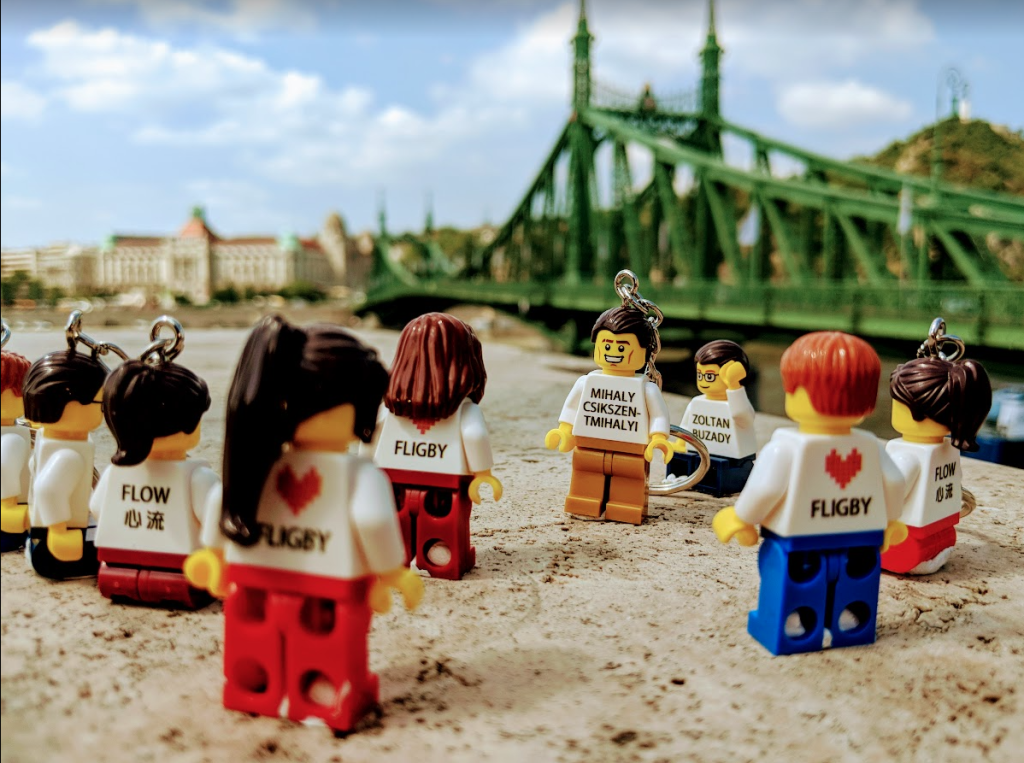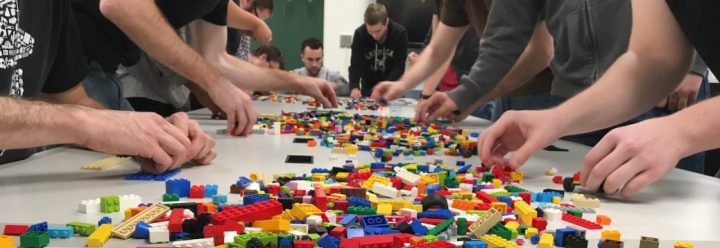Work and Play have been viewed as dichotomous concepts throughout history, with work representing serious and enforced tasks, while play represents activities done purely for enjoyment and pleasure. As the modern workforce undergoes radical changes, the gradual integration of the two concepts is being recognized and imbibed into contemporary work culture to foster greater creativity, better performance, higher overall well-being and an improved occurrence of flow states (Weintraub at al, 2023).
Representations of the co-existence of play and can be cited from historical art and pop-culture references to contemporary workplace designs in leading organisations. Works of art in the pop-culture genre by the famous artist and designer Corita Kent represented the integration of play and work in the 1900s when she coined the term “plork”.
“Play is a way of working, and work is a way of playing and our best times are when working and playing are the same”
– Corita Kent
The integration of these seemingly opposite concepts gave rise to Playful Work Design: a proactive work behaviour where employees incorporate play into their work activities to promote fun and challenge, without changing the design of the job itself. Playfully designing one’s work purely focuses on a mental shift in the way employees approach work, integrating motivational, social, and work context characteristics. This essentially means that mundane work activity is essentially perceived as part of a game with its own set of rules and goals. This could include timing oneself in a data entry task to achieve the fastest entry time and set personal records, thus creating competitiveness in the task. (Bakker AB, Scharp YP, Breevaart K, et al, 2021).
Contemporary attempts by organisations to integrate a playful work design include the “LEGO Serious Play” methodology where employees use LEGO bricks to solve complex problems in a playful manner allowing for higher employee engagement and better team communication. The research studied the flow experience when the Lego Serious Play methodology was used as a warm-up before performing creative tasks. Results indicated a greater occurrence of Flow, as discovered by Prof. Mihaly Csikszentmihalyi, on 2 of the 3 flow experience elements: individual Flow feeling and individual Flow corridor (Primus, D., & Sonnenburg, S, 2018).
This effect can be explained by drawing upon the notion that play is an intrinsically enjoyable and motivational activity and that humans tend to engage in play due to its inherent pleasurable nature. The intrinsically motivating nature of playful behaviour enhances its likelihood of leading to a state of flow, greater creativity, and job satisfaction. As employees engage in intrinsically rewarding and enjoyable work activities, they are also more likely to experience a state of complete absorption and focus (Michelle Renard, 2018). In addition, gamifying one’s everyday work tasks or setting specific self-imposed time constraints leads to a greater sense of autonomy and control over one’s work thus leading to a greater occurrence and experience of Flow (Gerdenitsch & Besser, 2020).
This begs the question; can all work tasks be playfully designed? Where do we draw the line between pleasure and productivity?

References:
Weintraub, J., Nolan, K., & Sachdev, A. (2023). The Cognitive Control Model of Work-related Flow. Frontiers in Psychology, 14. https://doi.org/10.3389/fpsyg.2023.1174152.
Scharp, Y., Bakker, A., Breevaart, K., Kruup, K., & Uusberg, A. (2021). Playful work design: Conceptualization, measurement, and validity. Human Relations, 76, 509 – 550. https://doi.org/10.1177/00187267211070996.
Primus, D., & Sonnenburg, S. (2018). Flow Experience in Design Thinking and Practical Synergies with Lego Serious Play. Creativity Research Journal, 30, 104 – 112. https://doi.org/10.1080/10400419.2018.1411574.
Michelle Renard, R. J. S. (2018). Can non-profit employees’ internal desires to work be quantified? Validating the Intrinsic Work Motivation Scale. South African Journal of Psychology Vol. 48, Iss: 41, pp 48-60.
Cornelia Gerdenitsch, D. S., Markus Besser. (2020). Work gamification: Effects on enjoyment, productivity and the role of leadership. Electronic Commerce Research and Applications (Elsevier), Vol. 43, pp 100994.
Author:

Graduate Organisational Psychologist
